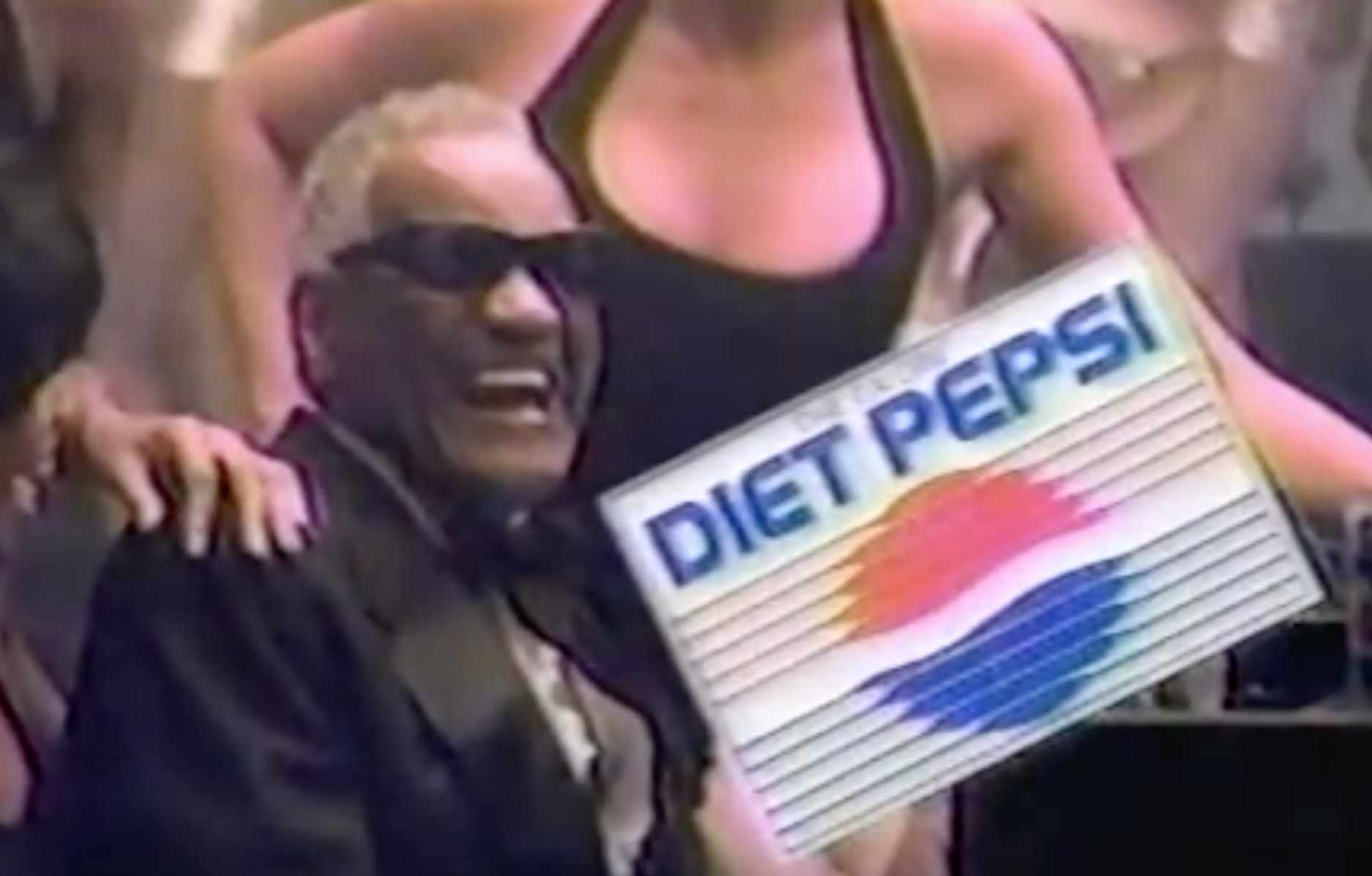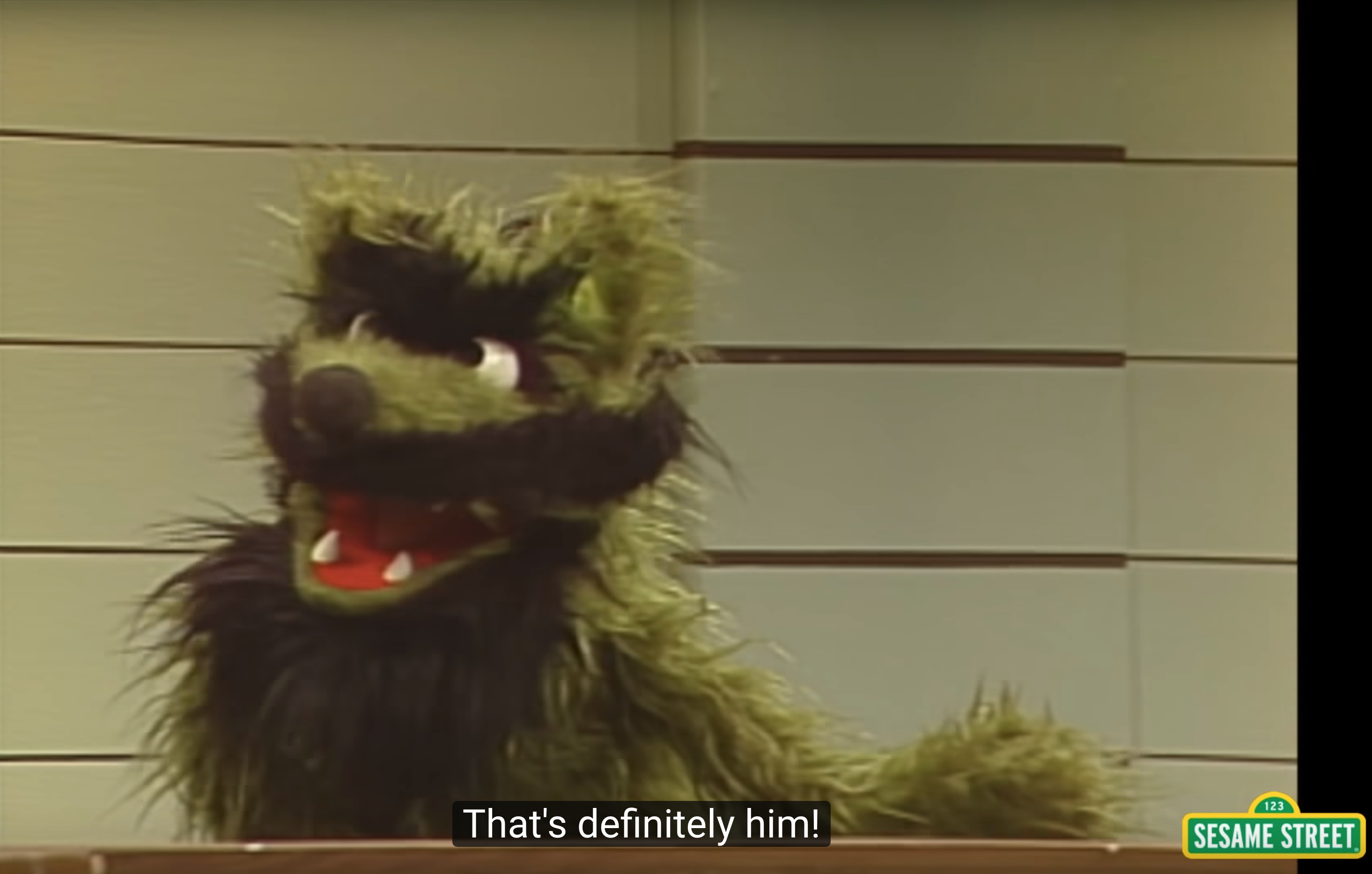
This is the second entry in a new recurring feature in which Believer Commercials Correspondent Ian Dreiblatt travels back in time via YouTube.com to review and examine the cultural phenomenon that was Television Commercials. Commercials featured here will mostly be old, and have, in many cases, already left an indelible mark on America and its culture. Read the first entry.
Recently, Grace Slick usefully made visible a phenomenon I call the Pepsi Principle. We’ll get there, but first, let’s rewind a little bit.
In 1988, Grace Slick officially left Starship, the band that had begun two decades earlier as Jefferson Airplane, then become Jefferson Starship, only to be denuded of its “Jefferson” altogether by a lawsuit from founding guitarist Paul Kantner in 1984. Leaving the group was a dubious achievement. On the one hand, Starship is just awful, and escaping the outfit behind such roller-rink clunkers as “We Built This City (On Rock and Roll)” and “Nothing’s Gonna Stop Us Now” is an act of vision and laudable courage. On the other hand, to make such an escape, Slick first had to spend twenty years wading from the affable, doofy shallows of “Somebody to Love” to the deep, gatedly reverberant bog of crappola like “Babylon.”
Fast forward thirty more years and Slick, who will be eighty this October, has once again achieved ambiguity. After “Nothing’s Gonna Stop Us Now” appeared in a recent commercial for Chick-Fil-A (seemingly not viewable online), she published an op-ed in Forbes to say she’d let the fast-food chain use her song not despite, but because of, its widely-noted homophobia, which she deplores. “I am donating every dime that I make from that ad to Lambda Legal, the largest national legal organization working to advance the civil rights of LGBTQ people, and everyone living with HIV,” Slick writes. In a near-parody of morally compromised boomer self-satisfaction, she goes on to explain that this is because she’s “from a time when artists didn’t just sell their soul to the highest bidder, when musicians took a stand, when the message of songs was ‘feed your head,’ not ‘feed your wallet.’” After quoting herself, she quotes J-Lo quoting Toni Morrison, and then closes with a quote from “Nothing’s Gonna Stop Us Now.” It is, how you say, far out.
Grace Slick’s impulse to support Lambda Legal is wonderful (you can donate to that worthy organization right here, without having to think about hate-chicken or listen to Starship). But this logic is a little melty.  The whole nature of advertising is that Chick-Fil-A will have already determined that this commercial stands to spur more in sales revenue than it costs in song licensing. The Big Bad Chicken then uses that money to fund organizations that antagonize gay folks. Even if we can conceive of a social calculus in which Slick’s contributions to Lambda Legal cancel out the harms her song enables, this is a zero-sum scenario. At best, we eat the chicken, shit it out, and move on with our lives. I’m all for shitting every day, but taking a stand it is not.
The whole nature of advertising is that Chick-Fil-A will have already determined that this commercial stands to spur more in sales revenue than it costs in song licensing. The Big Bad Chicken then uses that money to fund organizations that antagonize gay folks. Even if we can conceive of a social calculus in which Slick’s contributions to Lambda Legal cancel out the harms her song enables, this is a zero-sum scenario. At best, we eat the chicken, shit it out, and move on with our lives. I’m all for shitting every day, but taking a stand it is not.
Of course, the exquisite psychic discomfort of living in a reality where a homophobic chicken chain plays political tug-of-war with the author of a leaden tango about eating acid is in no way Grace Slick’s fault—that’s just capitalism’s drippy signature across the canvas of our imaginations. In this situation, the song and the sandwich and even the hatred become symbols, which is to say tools for contesting symbolic space. And it’s space that’s been contested before: in 1967, Abbie Hoffman wrote to the Village Voice to denounce the radio commercials Jefferson Airplane had recorded for Levi’s Jeans while that company’s workers were on strike. (“Perhaps many in the hippie community find the acceptance of this contradiction mind-expanding; personally, all I get is a headache.”) One wonders how today’s pious sandwich reactionaries will harmonize their macabre fixation on cows’ fear of being slaughtered and eaten with the American right’s recent denunciation of the socialist desire “to take away your hamburgers.” But that’s for another column.
Ultimately, Slick’s editorial, in the service of its holy antagonisms, calls attention to the two discrete ways that “Nothing’s Gonna Stop Us Now” simultaneously exists: as a work of art, and as the product of a commercial industry. This is the Pepsi Principle: the phenomenon by which songs in commercials demonstrate the fluidity that exists between pop aesthetics and our enveloping corporosphere. Starship is capable of symbolic battle with Chick-Fil-A exactly because it is already speaking a language Chick-Fil-A understands.
The Pepsi Principle takes its name from—guess where?—Pepsi. Pepsi has a storied history of rock-and-roll collaboration starting at least half a century ago, when Del Shannon rented out his signature wee-ooh to shift some fizz. (“Shift some fizz” is venerable industry slang for “sell some sodas” that I just made up.) The period I’ve been calling the Commercial Baroque, from around 1985 to around 1995, was an especially fertile time for demonstrations of the Pepsi Principle. Today, one can easily forget that, for his iconic spots in the late eighties, Michael Jackson didn’t just license his songs, but actually re-wrote them, recording new versions in which the lyrics, rather than denying paternity or threatening Wesley Snipes, extolled the splendors of his patron fluid.[1] David Bowie did the same, even pulling Tina Turner into it, though he had the forbearance not to actually name his effervescent god in the new lyrics.[2] Aretha Franklin didn’t repurpose her catalogue, but she too felt the twelve-ounce spirit. And it’s hard to imagine a more vivid demonstration of the Pepsi Principle than the fact that, in 1989, two days before the video for Madonna’s “Like a Prayer” awakened Respectable America’s hemorrhoids with its horny stigmata and forests of burning crosses, the song debuted as a Pepsi commercial, in a shortened edit, with a dramatically chilled-out storyline. When she accepted that year’s MTV Viewer’s Choice Award, Madonna said, “I would really like to thank Pepsi for causing so much controversy.”
The Pepsi Principle finds its highest exaltation in the work of Ray Charles, who did commercials for much of his career, imbuing them with a kind of naturalism about the connections between artistic production and branded consumption. His Coke ads from the sixties, for example, are unabashedly sublime. (His Coke duets with Aretha Franklin are also something special.) A goofier highlight is the 1984 Pioneer laser disc spot that has him explaining, “It’s a video turntable that works with a laser beam!”—a wild ride, with a silent cameo from George Shearing at the end. A few years later, Europeans could watch him driving languidly through the desert (and speaking French) in this Peugeot ad. And he, too, sang repurposed lyrics to preexisting songs, as when he took up his own chicken act, or submitted to the process of California-Rasinification, a science then in its infancy. (There are also legends, told by the elders, of a series of Arby’s commercials out there. They’re not on Youtube. I can see them in my dreams.) Probably strangest of all are his later-career commercials for v
In 1990, Ray Charles’s commercial work reached its apotheosis in “You Got The Right One Baby, Uh-Huh,” a Diet Pepsi ad that took America by storm. The sixty-second original piece presents the utter fluidity between music and capital as an aspartame-drenched Pepso-sexual bacchanal of pure refreshment. Here we see the Pepsi Principle concentrated into an infinitely dense singularity, one whose gravity is so great that it obliterates the distinctions between human expression and corporate messaging altogether. This micro-video’s aesthetics are so indistinguishable from money that they’ve become immune to co-optation, and its commercial ends are so aestheticized that they are impervious to human pleasure. This time, as a celebrated mistranslation has it, we are both.
Over the next few years, Diet Pepsi would roll out a series of Ray Charles commercials, most of them incorporating at least some of the song, traversing a number of schticks (also, hey is that Andy Dick?). They really should suck, but Ray Charles’s itchy charisma kind of pulls it off, a point one of the spots makes with gloating, star-studded abandon. As the song portrayed itself triumphing over law and conquering the nations, TV reporters delivered big, dumb, friendly stories about it. David Novak, an executive VP at Pepsi, said the goal of the campaign was “to take our new theme line, ‘You’ve got the right one baby, uh-huh,’ and make it a part of the American vernacular”—a goal it fleetingly attained.
The power of the ad, ultimately, is that it manages to be fully a Ray Charles Song and fully a Diet Pepsi Commercial, rendering each thing a coequal form of the other. Its cause—the ever-farther spread of one irrepressibly lovable, unsurpassably colorful, and eminently soulful no-cal beverage—justifies its form—a never-endingly watchable, indiscriminately boppable, absolutely remunerative mini-movie of Ray and the Raelettes working it pepsily across a soundstage—and vice versa. Like a marble victory column, it reconfigures the space around it into an argument for dominion, while reconceiving dominion as an opportunity for art.
Grace Slick has an admirable sense of mischief and a voice like a Mack truck, and she’s trying to be an ally. But her Funky Chicken with the Devil ultimately falls short. Ray Charles, by embracing the hilarity of our predicament—that our very refreshment comes at the mercy of corporate emanations whose depravity no muse can cure—has more to tell us about ourselves, our hungers, our thirsts. And when, a jillion years hence, wisps of “You Got the Right One Baby” radiate out past the sentient beings of some distant galaxy, those who live there will know something real about what we were. And they, too, shall say: Uh-huh.
[1] It is impossible to discuss Pepsi TV ads of the 1980s without briefly mentioning Michael Jackson. Between the time this column was written and its publication, HBO released Dan Reed’s harrowing documentary Leaving Neverland, which reveals that among those Jackson abused were the young co-stars of some of the commercials he made. I can’t pretend to know how we navigate the serious discussion this revelation has, thankfully and at long last, engendered, but I have opted not to link to Jackson’s videos here.
[2] The video for “Nothing’s Gonna Stop Us Now,” which partly re-casts the movie “Mannequin” (on whose soundtrack the song appeared) with the members of Starship, and the David Bowie Pepsi ad, which shows a nerded-out Bowie weird-sciencing himself a playmate only to accidentally spill Pepsi on the console and render her really something, have a factor in common: they are both, coincidentally, re-tellings of Pygmalion.




